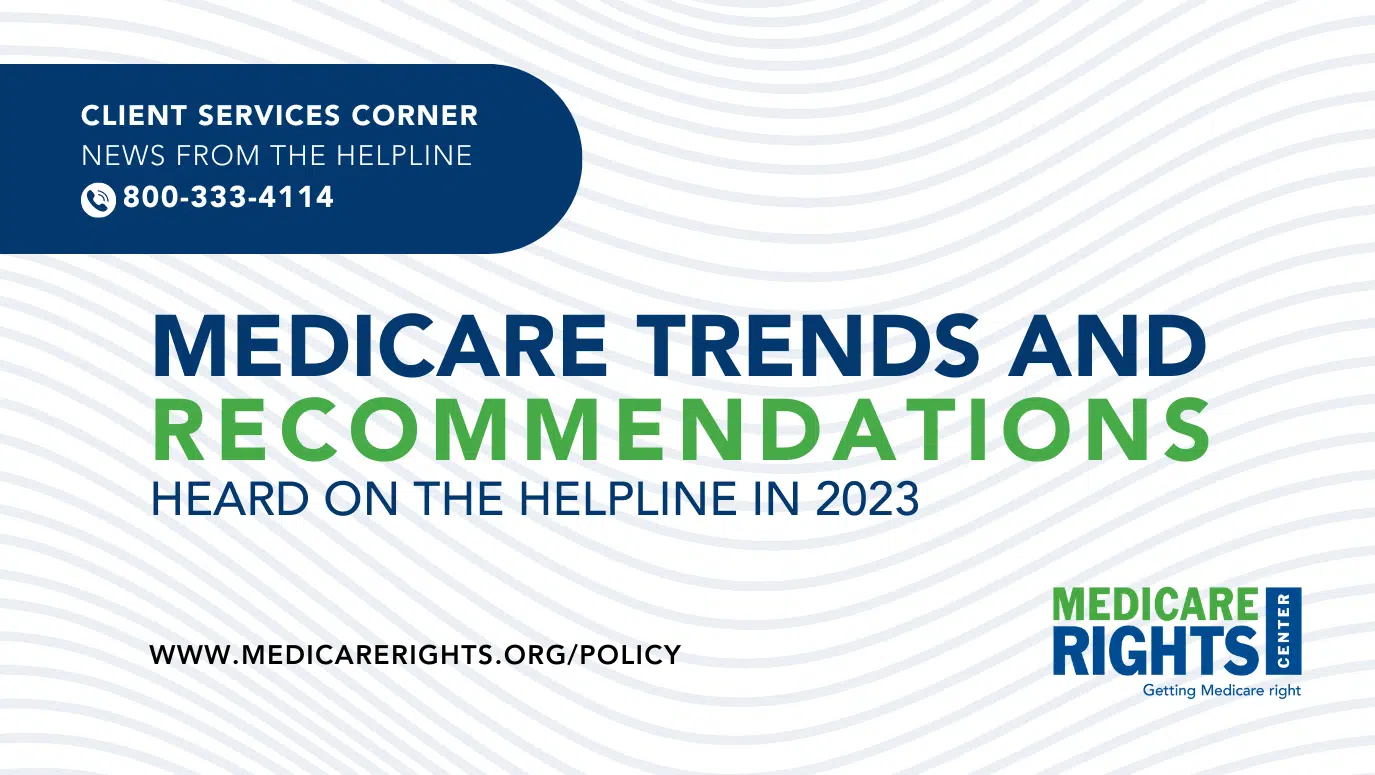
Proposed Rule Would Improve Medicare Advantage Prior Authorization and Transparency
This week, Medicare Rights submitted comments in response to the annual Medicare Advantage (MA) and Part D proposed rule for
Join Us Live for a Discussion on Medicare, Democracy, and the Future of Health Care
Largely driven by prior authorization, MA and Part D coverage denials leave beneficiaries with only bad options: paying out-of-pocket, going without, or getting embroiled in a daunting and deeply flawed appeals process. Each path can lead to delayed care, abandoned therapies, worse health, and higher costs. Particularly egregious are improper coverage denials, which force people to make this choice unnecessarily. Changes are long overdue. Harmful denials must be curbed, and the appeals systems must be reformed to function as a safety valve—rather than as an inadequate substitute for sound plan decisions and robust federal oversight.

This week, Medicare Rights submitted comments in response to the annual Medicare Advantage (MA) and Part D proposed rule for

This week, the Medicare Rights Center released our annual helpline trends report, Medicare Trends and Recommendations: An Analysis of 2023 Call
New York, NY—The Medicare Rights Center (Medicare Rights) released its annual helpline trends report, Medicare Trends and Recommendations: An Analysis of
This report features the top helpline trends and highlights the most commonly sought helpline and Medicare Interactive answers, providing a glimpse into the various questions and needs of Medicare beneficiaries, caregivers, and the professionals assisting them in the community in 2023.

Late last week, the Centers for Medicare & Medicaid Services (CMS) finalized a rule that codifies appeal rights for people

KFF recently analyzed Medicare Advantage (MA) data on prior authorization, finding that the rates of requests, or submissions from providers

Prior authorization is one of the processes Medicare Advantage and other private insurance companies use to manage health care utilization

A new study from University of Southern California (USC) researchers shows that Medicare Part D plans have been increasingly restricting

A recent survey from the Commonwealth Fund asked people with Original Medicare (OM) and Medicare Advantage (MA) about their experiences

A new survey from KFF highlights problems people have using their health insurance, with 60% of insured adults reporting that

This week, Medicare Rights submitted comments in response to the annual Medicare Advantage (MA) and Part D proposed rule for

This week, the Medicare Rights Center released our annual helpline trends report, Medicare Trends and Recommendations: An Analysis of 2023 Call
New York, NY—The Medicare Rights Center (Medicare Rights) released its annual helpline trends report, Medicare Trends and Recommendations: An Analysis of
This report features the top helpline trends and highlights the most commonly sought helpline and Medicare Interactive answers, providing a glimpse into the various questions and needs of Medicare beneficiaries, caregivers, and the professionals assisting them in the community in 2023.

Late last week, the Centers for Medicare & Medicaid Services (CMS) finalized a rule that codifies appeal rights for people

KFF recently analyzed Medicare Advantage (MA) data on prior authorization, finding that the rates of requests, or submissions from providers

Prior authorization is one of the processes Medicare Advantage and other private insurance companies use to manage health care utilization

A new study from University of Southern California (USC) researchers shows that Medicare Part D plans have been increasingly restricting

A recent survey from the Commonwealth Fund asked people with Original Medicare (OM) and Medicare Advantage (MA) about their experiences

A new survey from KFF highlights problems people have using their health insurance, with 60% of insured adults reporting that